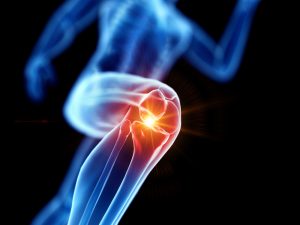Understanding the Alkaline Diet: Its Core Principles
The alkaline diet is based on the concept of optimising the body’s pH level through food. It suggests that consuming a diet rich in alkaline-forming foods can promote a more balanced internal environment, potentially leading to improved health outcomes.
The Science Behind the Alkaline Diet
Body pH and Dietary Influence
The human body operates within a narrow pH spectrum, maintaining serum pH around 7.4, slightly alkaline. This balance is vital for survival, governed by complex physiological mechanisms, particularly through renal and respiratory functions.
- Diet and Acid-Base Balance: Modern diets, often high in saturated fats, simple sugars, sodium, and chloride, but low in magnesium and potassium, may lead to diet-induced metabolic acidosis. This condition can disrupt the body’s acid-base balance, raising the risk of issues like kidney stones.
Alkaline Diet and pH Modulation
Alkaline diets, abundant in fruits and vegetables, tend to increase urine’s alkalinity and may reduce urinary calcium. However, these changes:
- Do not necessarily mirror total body calcium balance or bone health improvements.
- Have a minimal effect on blood pH, which the body regulates strictly through inherent physiological mechanisms.
Potential Health Benefits
While there’s limited evidence supporting this diet’s impact on bone health or osteoporosis prevention, other potential benefits include:
- Improved potassium/sodium ratio, potentially beneficial for bone health.
- Reduced muscle wasting.
- Possible mitigation of chronic diseases like hypertension and strokes.
- Increase in growth hormone, positively influencing cardiovascular health, memory, and cognition.
- Enhanced intracellular magnesium levels, essential for various enzyme systems.
Scepticism and Limitations
Notwithstanding some positive aspects, this diet’s effectiveness in significantly altering overall health is met with scepticism. Major medical organisations, including the Mayo Clinic, view claims about the diet balancing body pH and yielding significant health benefits as largely unsubstantiated. The human body is adept at maintaining its pH levels, irrespective of dietary changes.
The Benefits of the Alkaline Diet
Enhancing Bone Health and Reducing Chronic Disease Risks
The alkaline diet, rich in fruits, vegetables, and alkaline-promoting foods, has been linked to various health benefits. Additionally, research suggests this diet can positively impact bone health, potentially reducing the risk of chronic diseases. Its focus on alkaline-forming foods may help in reducing muscle wasting, offering a dietary approach to manage or prevent chronic health issues.
Boosting Bone Mineral Density and Muscle Mass
A key aspect of the alkaline diet is its potential to improve bone mineral density and muscle mass. This improvement is attributed to the high intake of alkaline-forming foods, which are believed to offer protection from chronic illnesses. Moreover, the diet supports effective toxin excretion from the body, contributing to overall health.
Holistic Health Improvements
The diet’s impact extends beyond bone and muscle health. It has been associated with increased growth hormone levels, enhancements in cardiovascular health, memory, and cognition. Additionally, it aids in increasing intracellular magnesium levels, crucial for enzyme systems and activating vitamin D.
Dietary Components
The alkaline diet comprises a variety of nutrient-rich foods. These include:
- Fruits and unsweetened fruit juices
- Whole grains like wild rice, oats, and quinoa
- Legumes
- Non-starchy vegetables such as leafy greens, broccoli, and cabbage
- Nuts and seeds
These components are not only alkaline-promoting, but also have high nutritional value and play a role in long-term disease prevention.
Points of Caution
Despite its benefits, there are considerations to keep in mind:
- Nutritional Balance: Strict adherence might lead to deficiencies in protein, iron, and calcium. These nutrients are vital for muscle growth, anaemia prevention, and bone health.
- Diet Complexity and Cost: Implementing this diet requires careful planning. It can be expensive and labor-intensive, focusing on whole, unprocessed foods.
- Urine pH Misconception: Although the diet alters urine pH, this change doesn’t necessarily reflect overall health, as urine pH is more an indicator of recent dietary intake.
The alkaline diet offers substantial health benefits, mainly due to its emphasis on fruits and vegetables. However, it’s essential to approach it with an understanding of its potential limitations and the need for balanced nutrient intake. Further scientific studies are required to comprehensively understand its impact on health.
Evaluating the Alkaline Diet
The alkaline diet is sometimes misunderstood, with misconceptions about its effectiveness and practicality. Addressing these concerns involves educating on balanced nutrition and emphasising the diet’s focus on overall healthy eating patterns.
Healthcare professionals emphasise the importance of a balanced diet, highlighting that while the alkaline diet has potential benefits, it should not exclude essential nutrients found in a broader range of foods.
Disclaimer: The information provided in this article is for educational purposes only, and should not be considered medical advice. Please consult with a healthcare professional for more personalised guidance and various treatment options that may be available to you.
References
- Schwalfenberg, G. (2012, January 1). The Alkaline Diet: Is There Evidence That an Alkaline pH Diet Benefits Health? Journal of Environmental and Public Health. https://doi.org/10.1155/2012/727630
- Schwalfenberg, G. (2012, January 1). The Alkaline Diet: Is There Evidence That an Alkaline pH Diet Benefits Health? Journal of Environmental and Public Health. https://doi.org/10.1155/2012/727630
- Persensky, M. (2022, December 8). What Is the Alkaline Diet, and Is It Safe? Cleveland Clinic. https://health.clevelandclinic.org/alkaline-diet/
- Blackburn, K. B. (2019, May 8). The alkaline diet: What you need to know. MD Anderson Cancer Center. https://www.mdanderson.org/publications/focused-on-health/the-alkaline-diet–what-you-need-to-know.h18-1592202.html














